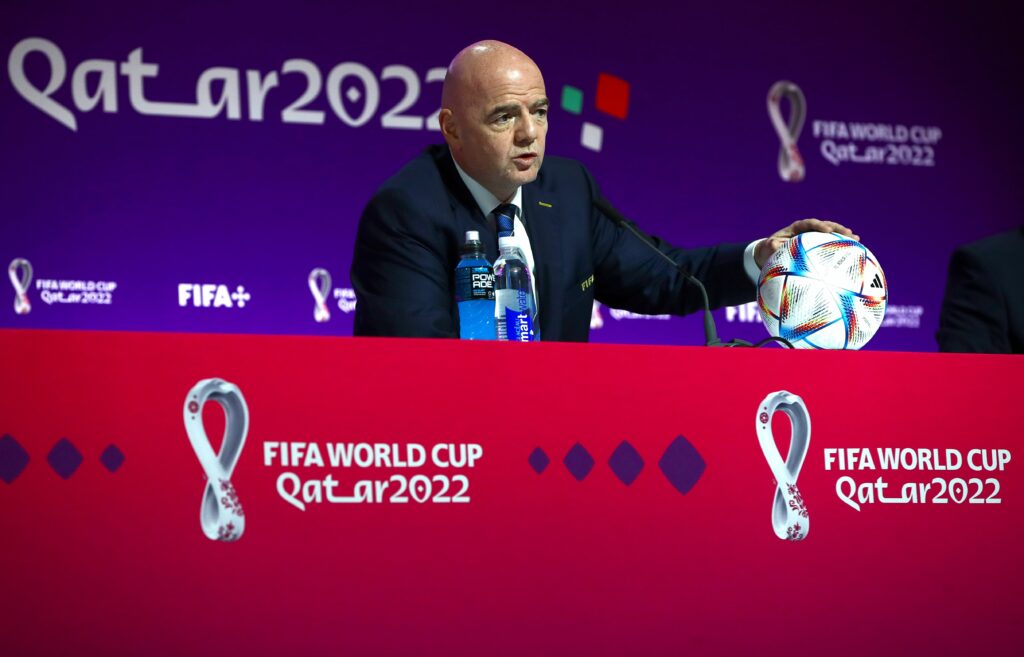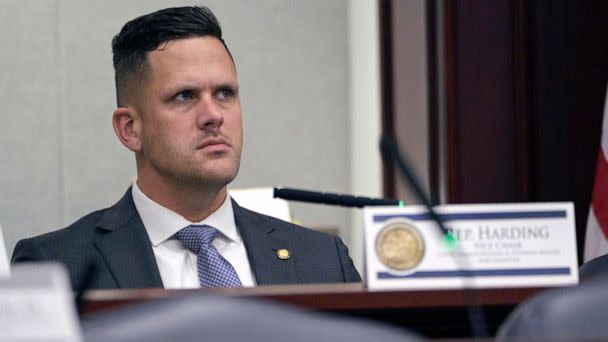Ahead of International Day of Persons with Disabilities (3rd December), Neil Callaghan reflects on disability in the last year of sport.
Writing for the Sport Industry Group around International Day of Persons with Disabilities (#IDPD) provides a great opportunity to reflect on the last twelve months with consideration to disability and sport. This requires balance, between celebrating positive progress and recognising on-going barriers still to be overcome.
The World Cup taking place in Qatar continues to create shocks and provoke emotions of the good and bad variety, on and off the pitch. Before the tournament began, FIFA president Gianni Infantino kicked things off with a bemusing press conference address. His ‘Today I feel…’ speech which included the words “today I feel disabled”, will be remembered for all the wrong reasons.

Photo by Kieran McManus/Shutterstock
He went on to explain “of course I’m not Qatari, Arab, African, gay or disabled… but I feel like them because I know what it means to be discriminated.” Referencing his experience of bullying having grown up with red hair, freckles and a limited grasp of the German language as a child.
Any instance of discrimination or bullying must always be taken seriously and never dismissed. However, in the context of this statement, his words have understandably been viewed as offensive and highly inappropriate. Tony Taylor Chair of Level Playing Field, a charity representing disabled sports fans, called it “degrading, disrespectful and dangerous.”
It highlights many factors impacting disability inclusion:
◉ That presumptions about the feelings or personal experiences of others should not be made. Particularly as 80% of all disabilities are not visible and not everyone with a disability will choose to disclose it publicly.
◉ The influence of public narratives, to enhance or undermine positive progression.
◉ The importance of language, the words we choose and how to use them appropriately.
◉ Consequences of unconscious bias, intersectionality or simply a failing to operate with due care and consideration toward others.
◉ Perhaps most importantly here, the essential role of senior leadership to advocate, model and facilitate inclusive cultures. Look no further than The Valuable 500 for a positive demonstration of this in action.
A more welcome World Cup narrative soon followed in England’s opening fixture, thanks to Jack Grealish and his promise to a young fan. Eleven-year-old Finley Fisher, who has cerebral palsy, as does Jack’s younger sister, had written to his favourite player saying, “I wish there were more people in the world just like you who treat people with disabilities the same as anyone else.” His dream of meeting up with the footballer in real life came true at Man City, where a goal celebration was agreed between them and duly delivered on the biggest stage in the sport. Generating widespread media attention explaining their special connection that came through a shared love of the game.
Another friendship and important cause made headlines thanks to the heroic efforts of Kevin Sinfield MBE. Since his friend and former team-mate Rob Burrow was diagnosed with Motor Neurone Disease in 2019, he’s taken on several gruelling fundraising challenges. Most recently completing seven ultra-marathons in seven consecutive days, raising further awareness and over £2m for MND organisations. One of those charities being the My Name’5 Doddie Foundation, set up by Doddie Weir OBE following his own diagnosis in 2017. The larger-than-life Scotland International rugby union player, who also represented the British & Irish Lions, sadly passed away last weekend. Both Doddie and Rob have campaigned fearlessly to help others and seek a cure for MND, extending their legend status far beyond what they both achieved on the pitch. The BBC’s most recent documentary on the Burrow family is a difficult but compelling watch. Poignantly illustrating that disability can impact all of us at any stage in our lives, directly or through our network of family and loved ones. Yet only in the worst of circumstances does this become clear to some.

Photo by Paul Currie/Shutterstock
Kevin Sinfield finished his latest challenge at Old Trafford, arriving during the men’s Rugby League World Cup Final. A tournament that, for the first time, integrated the wheelchair format of the game alongside male and female competitions. Coupled with prime-time coverage and captivating match action, it created a breakthrough moment for the sport which saw host nation England lift the winner’s trophy. What comes next will be important. Cardiff hosting the 2023 Wheelchair Rugby European Championships could be timely for keeping up this momentum.

Photo by David Davies/EPA-EFE/Shutterstock
The 2022 Commonwealth Games held in Birmingham was the only major multi-sport event with an integrated para programme, meaning there is no separate competition or ticket for the para-sport events, with all medals contributing to a nation’s tally. It saw the largest programme of events in games history for women (136) and Para-sport athletes (42, across 8 sports). Drawing an estimated overall UK audience of more than 20 million and hundreds of millions globally.
The 150th Open, held at the home of golf St Andrews, was another historic moment in this year’s sporting calendar. Before the tournament, which would see Tiger Woods wave goodbye to the old course and Cam Smith say hello to his first major, came a ‘Celebration of Champions’. Whilst not directly integrated into the main competition, it provided an important platform in the build-up, to showcase the diversity and inclusivity of golf which aspires to be recognised as the world’s most accessible sport. Showcasing full live coverage of leading male, female and disabled golfers of all ages, competing alongside each other in mixed groups, over four holes of the famous course. Spaniard Juan Postigo Acre, who was born without much of his right leg and plays without the use of a prosthetic for balance during his swing, was the standout star amongst stars for me. More people, getting to see a diverse mix of talent, more easily and regularly, will continue to make a big difference. This coming in the same year Linn Grant made history by becoming the first female golfer to win a mixed European tour event.

Photo by Robert Perry/EPA-EFE/Shutterstock
Improving authentic representation and increasing profile is important. Not only for those playing sport, but also for other talent in front and behind the camera. In February, Channel 4 announced an all-disabled presenting and punditry team that would deliver UK coverage of the Beijing 2022 Paralympic Winter Games, produced by Whisper. A global first for a broadcaster covering a world class sporting event.

Photo by OIS/Chloe Knott/Shutterstock

BT Sport continued and extended its commitment to The FA Disability Cup, broadcasting live and accessible coverage of impairment-specific national football finals, featuring Ade Adepitan and seven-time Paralympic champion Hannah Cockcroft in their presenting line up this year.
Some former Paralympic athletes made history away from the Games. John McFall was announced as the European Space Agency’s first ‘para-astronaut’ and could become the first disabled person to go into space. While cyclist Lora Fachie appeared on CBeebies when it aired its first ever Bedtime Story read in braille. Following this, the BBC has just announced Rob Burrow as the next guest to read a CBeebies Bedtime Story, appearing this Saturday on International Day of Persons with Disabilities, thanks to the ground-breaking technology he uses to communicate through an eye-controlled computer, in a version of his own voice which retains his Yorkshire accent.
Elsewhere, Rose Ayling-Ellis became the first deaf contestant to win BBC’s Strictly Come Dancing and, whilst not sport related, CODA won three Oscars including Best Picture and Best Supporting Actor for Troy Kotsur.
These innovations and role models continue to demonstrate what’s possible, challenging perceptions of disability and inspiring others to keep dreaming and achieving.
For all this positive progress, there are fundamental issues still to be overcome. The need to ‘mind the gap’, which I wrote about last year in reference to the disability divide, stays the same. There remains insufficient recognition or provision for disabled people as a valued and valuable audience in our society.
In sport this includes disabled people being thought of and treated as an audience of fans and consumers, producers and creators, as well participants, coaches, facilitators or volunteers. A morally, ethically, commercially, and numerically important group of people are being overlooked by stakeholders across the system.
Establishing The Ability Group in Sport (TAGS), a network for disabled people working or aspiring to work in sports media and production, is a first I’m pleased to have been part of this year. But it came in response to no such network already being in place. So wide-reaching objectives have been set, to drive positive change, helping to right many of the wrongs our members have faced and continue to encounter.
More action is needed. Paying lip service to ‘diversity and inclusion’ is not enough, particularly if your comms, products or services are not accessible. Superficial inspiration-porn is not the answer. Nor is the one-off campaign, that ticks a box in the annual activation plan, helping everyone feel good when it’s splashed all over LinkedIn, company creds and the next industry award entry. We must go beyond isolated efforts, the designated day or allocated month in the cultural calendar. To make a meaningful and lasting difference all year round.
When an organisation decides it must channel its efforts into asking the public to ‘see the person’ not the disability, as the Royal National Institute of Blind People (RNIB) has done, it’s cause to question the sort of world we are living in.
Sport and its relationship with disability is more than just the Paralympics. It’s bigger than awareness of disability formats or increasing participation. It’s about humanity. Positive, collaborative, proactive EDI, that’s always-on, informing what we do and how we do it.
The global pandemic altered the world as we knew it and demonstrated that action can be taken, at speed, when it’s deemed necessary and business critical to do so. Disability is simply still not a priority, for enough people, across our industry.
Progress is being made and sport is uniquely placed to play a transformative role in positively driving societal change, like nothing else can. John McFall is helping to demonstrate in his words that science and potentially space is for everyone. Sport is no different. If we recognise the value of disability, as part of what we all do, the opportunities and possibilities are out of this world!







